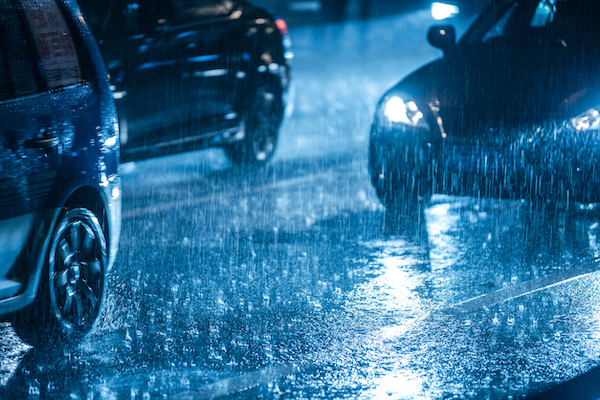Kibbey Wagner Injury & Car Accident Lawyers Stuart | October 11, 2022 | Property Damage

Hurricane Ian slammed into Florida as an intense Category 4 hurricane. The winds were just two miles per hour under the strongest category. A hurricane of that strength is predicted to cause catastrophic damage, which Ian did throughout Florida.
Unfortunately, many Floridians are dealing with damage to their homes, businesses, vehicles, and other property. Hurricane damage includes damage from winds, storm surge, and floods. Knowing what to do if you have a hurricane-damaged car can help you receive the compensation you need to repair or replace your vehicle.
Does PIP Insurance Cover Hurricane Damage?
Florida’s no-fault insurance laws require drivers to have at least $10,000 in Personal Injury Protection (PIP) insurance coverage. In addition, they must also have at least $10,000 in Property Damage Liability (PDL) coverage.
PIP insurance coverage pays up to 80% of your reasonable medical bills if you are injured in an automobile accident, regardless of who caused the car crash. It also compensates you for up to 60% of your lost wages. PDL coverage compensates another driver for property damage to their vehicle if you cause a car accident.
No-fault insurance generally does not cover damage to a vehicle caused by hurricanes, tropical storms, or floods. Therefore, unless you purchased optional car insurance coverage, your insurance provider might not cover hurricane damage to your vehicle.
Comprehensive and Collision Insurance Coverage
Many drivers purchase optional car insurance for personal injury and property damage, even though Florida insurance laws do not require these policies. Collision insurance pays for damage to your vehicle in an accident that you cause. Therefore, your collision insurance should cover the damage if you were driving during a storm and caused a car accident.
Comprehensive insurance pays for damage to your vehicle caused by events other than a collision. Policies often cover damage caused by fire, theft, and vandalism. They also cover damage caused by falling trees, hail, wind, flooding, and other hurricane-related incidents.
However, you must read your policy to determine coverage. Insurance policies often contain exclusions that result in no coverage for specific events or damage.
What Should I Do if I Have a Damaged Car After a Hurricane in Florida?
First, contact your insurance company to report the hurricane damage. Your insurance company should open a claim and assign a claims adjuster. While you wait for the claims adjuster to contact you, read your automobile insurance policy to determine if you have insurance that covers hurricane damage.
If your policy covers hurricane damage, the claims adjuster should evaluate the damage. The company might ask you to take photographs to send to the company or have the vehicle towed to a mechanic if it is not drivable. The company might ask the mechanic to evaluate the damage to the engine.
The insurance company should pay to replace or repair your vehicle if the policy covers hurricane damage. If the company denies your claim, ask for a written denial containing the specific reason for denying the claim. Then, contact a lawyer for advice.
If you do not have automobile insurance that covers hurricane damages, you are likely responsible for the damage to your car. You can contact FEMA and other government and nonprofit agencies for assistance.
Florida law requires its Department of Highway Safety and Motor Vehicles (FLHSMV) to indicate that the vehicle is flood-damaged on a car title. Therefore, when purchasing used vehicles titled in Florida, always check the title for a “brand” that indicates the vehicle was damaged by a flood.
How Can I Prevent Hurricane Damage to My Vehicle in the Future?
The best way to protect yourself against future loss is to purchase comprehensive and collision car insurance that includes hurricane and flood damage coverage. Verify with the insurance agent you have sufficient coverage if your car is damaged in a storm or flood. Then, if another hurricane damages your vehicle, you have insurance to replace or repair your car.
It is always wise to heed evacuation notices. Leaving in your vehicle and driving to a safe location can save your life. If you cannot leave or you must leave your car behind when you evacuate, remove all personal items and valuables from the vehicle.
Parking the vehicle in a sheltered or enclosed garage can provide protection. You can also try parking the vehicle in an elevated area. Covering your car with a tarp can help protect it from debris.
Unfortunately, no one can accurately predict the damage a storm might cause. Heeding advice from government officials and erring on the side of caution is the best way to protect yourself and your vehicle during a hurricane or tropical storm.
Contact KW Stuart Personal Injury & Car Accident Lawyers For Help Today
For more information, please contact the Stuart personal injury law firm of KW Stuart Personal Injury & Car Accident Lawyers to schedule a free consultation today.
We proudly serve Martin County and its surrounding areas in Florida:
KW Stuart Personal Injury & Car Accident Lawyers – Stuart
73 SW Flagler Ave
Stuart, FL 34994
(772) 444-7000